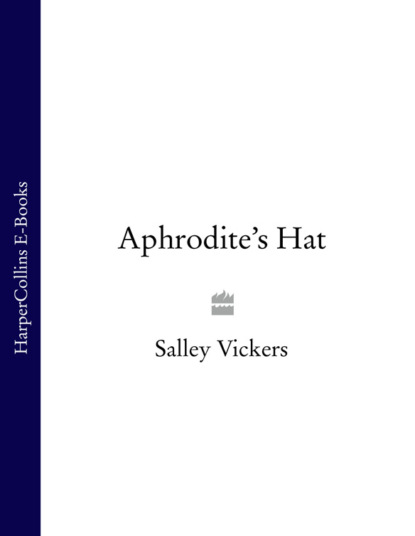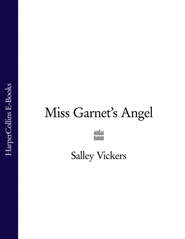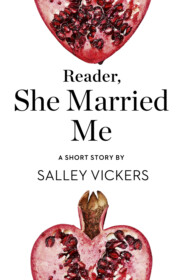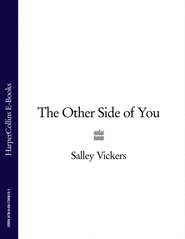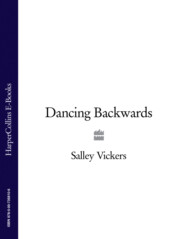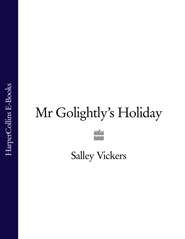По всем вопросам обращайтесь на: info@litportal.ru
(©) 2003-2024.
✖
Aphrodite’s Hat
Автор
Год написания книги
2018
Настройки чтения
Размер шрифта
Высота строк
Поля
‘Nothing. Christmas is best avoided.’ He didn’t even call it ‘humbug’, a word which at least has a touch of life to it.
‘We could always go to church.’
‘Over my dead body!’
‘You don’t want me to make any preparations?’
‘You please yourself. You always do.’
How has this happened? she asked herself, putting on her old coat to creep out to the park. It was as if she had been in an accident so serious she had not even noticed she was damaged until she tried to walk. Something drastic seemed to have occurred in the region of her spine. Returning home she rang Deb, but a message announced she would be away till the New Year. Once she and Deb had not gone out for an evening without informing each other of their respective movements.
I am alone, Emily said to herself, kneeling by the phone still in her coat. And I have done this to myself. The admission of responsibility made nothing better.
On Christmas morning, Emily woke before Lionel, whose body lay in the bed, well away from hers, his mouth a little open and a slight dribble of spittle visible on his chin. In the past, she might have felt tender at so naked a show of vulnerability. Now she didn’t even feel disgust. Anxious not to wake him, she slid out of bed and went downstairs to the kitchen to make herself tea. Outside there was a thick rime on the lawn and she watched a coal tit peck ferociously at the bacon rind she had hung for the birds on the lilac tree. A white lilac, which she had bought when she and Lionel married. It had never bloomed.
A card – one of the few they had received that year – from Beth and Kate, of the magi, on camels, following the star, was propped on the table. I’ll go to church, she thought. That at least will be some kind of celebration.
Having nothing better to do, Emily washed the kitchen floor before putting on boots and gloves for the walk to church. She thought of popping back upstairs to say where she was off to. Maybe better to leave a note which he could ignore if he chose. On the back of the envelope from Beth and Kate’s card, she wrote, ‘Gone to church’. Then, after a moment’s reflection, she added, ‘Join me, if you like’.
As is so often the case when one has all the time in the world, by the time Emily set out for the service she was pressed and had to hurry. The pews were already packed when she arrived. She squeezed her way past a row of unyielding knees to a seat near the back of the church and knelt and made a silent prayer: Please, let it come right in the end.
She was singing ‘O Come All You Faithful’ when she saw Lionel. He had obviously arrived after her and was standing unobtrusively in one of the side aisles. Well, what a nice surprise – so prayers were sometimes answered. He had repented and come after her. They could walk home together, arm in arm, maybe through the park, and have a companionable Christmas after all.
After the service, Emily looked about for her husband but he must have slipped away. Maybe he hadn’t wanted her to know he was in church. But at least he had joined her, which was a start.
Emily’s heart was uncommonly buoyant as she walked back beneath the bright December sky. Never say die, she said to herself. Back home, she lit the oven for the farm chicken she had bought just in case. Looking out of the window, she saw that the tits had finished off the bacon rind and the lilac had blossomed, a delicate white, the colour of the frost. But that was strange. And when she went upstairs in search of Lionel, she found him where she had left him in bed that morning – stone cold, with the spittle on his chin quite dry.
EPIPHANY (#ulink_d7a63402-fd31-58de-87b2-e4c001b3eda6)
The maroon-and-cream country bus, the only one that ran that day on account of it being the holiday season, was late and it was already dark when the young man reached the crossroads at the top of the hill. Before him, the lights of the town cascaded into the creased steel of the water below. Way out, at the farthest reach of his vision, a fishing boat was trawling the horizon, carrying with it a frail cargo of two beads of greenish light.
It was colder than he had bargained for and he missed a scarf as he walked downhill towards the sea. The road was as familiar to his feet as to his mind. Maybe more so; the body has its own memory.
He had walked there so often as a child, envisaging the world he was going to escape to, a world wide with promise, a match for his elastic imagination. ‘Charlie,’ his gran used to say, ‘is made for better things than here.’
A cat slithered past his legs, a strip of skinny orange fur, and he wondered what ‘better’ meant to his gran. Fast cars and manicured blondes well turned out, in nightclubs, probably. Long ago, his gran had been a dancer herself, and in marrying a fisherman had come down in the world, in her own eyes.
He had been brought up, mostly, by his gran as he didn’t have a father to speak of. And his mother had had to work. Then a time came, he couldn’t be quite sure when, when Ivor, a furniture remover who drove a van, appeared on the scene. He came round for Sunday lunch, which they never usually had, and his mother had smacked his leg because he had revealed it was the first time he had eaten pork roast. She married Ivor in the end and he gave his stepson his name, McGowan, and a measure of grudging security. But Charlie always knew that his real father would have been different.
At the bottom of the hill, he turned right along the promenade, which ran alongside the unmindful water. Wrought-iron lampposts shed a lofty and undiscriminating light on a man peeing. The man shuffled round, setting his back towards Charlie, making a token gesture towards an embarrassment which neither of them felt.
Charlie continued along the promenade until it began to veer back towards the town and then ducked under the railings, and waded through inhospitable pebbles towards a hut, where, in the summer, ice cream and confectionery and hot dogs were sold. He leaned his back against the shuttered little structure and lit a cigarette, waiting.
He had smoked two cigarettes and was lighting a third before a car came to a stop in the road beside the hut. The car door banged to and then the heavy crunching tread of a dark shape of a man came towards him.
For a moment, Charlie thought the man was aiming a gun at him, then he realised it was a hand. He took the hand warily and shook it.
‘Charles?’
‘Charlie. Charles if you like.’
‘Charlie then. I found you.’
‘Yes.’
‘Shall we walk, Charlie?’
They walked along the pebbled shore while the waves made audible little flirtatious sallies and withdrawals at their feet.
‘You like the sea?’ The voice was deep but awkwardness made it rise unnaturally.
‘It’s OK. You get tired of it, growing up beside it.’
‘I never did.’ There was a tint of reproach in the voice now.
‘You live beside the sea, then?’
‘I live by it. Your mum not tell you I was a fisherman?’
‘She never told me anything about you.’
‘Can’t say I blame her. She was all right, your mum. A firebrand.’ It wasn’t easy, Charlie thought, talking to a man you’d never met whose face you couldn’t even see. ‘How did you find me then, if your mum told you nothing?’
‘My gran kept an address.’
‘Ah, she liked me, your gran. I sent you presents, birthday and Christmas.’
‘When’s my birthday, then?’ Charlie said, hoping to catch him out.
‘May twelfth, five fifteen in the morning, just in time to meet the morning catch.’
‘I never got any presents.’
‘I did wonder.’
Behind them, along the promenade, a car hooted and the harsh voices of some youths rang out, ‘Fuck you!’ ‘Fuckin’ madman! Fuck it!’ ‘Fuck off!’
‘Language,’ said the man walking beside Charlie. It was hard to tell whether the comment was a reproof or merely an observation.
‘Mum never let me swear.’
It wasn’t true. But he felt a weird obligation to assert a spurious vigilance on his mother’s part, to distance her from this discovered act of treachery. For more years than he could bear to calculate, he had longed for some token from his father. The news that this had been denied him, deliberately withheld, prompted a general defensiveness.
‘She was all right, your mum.’
Charlie detected that this was the man’s mantra against some cause for bitterness and tact made him draw back for a moment before lobbing the question: ‘Why’d you leave her then?’
‘That what she told you?’





